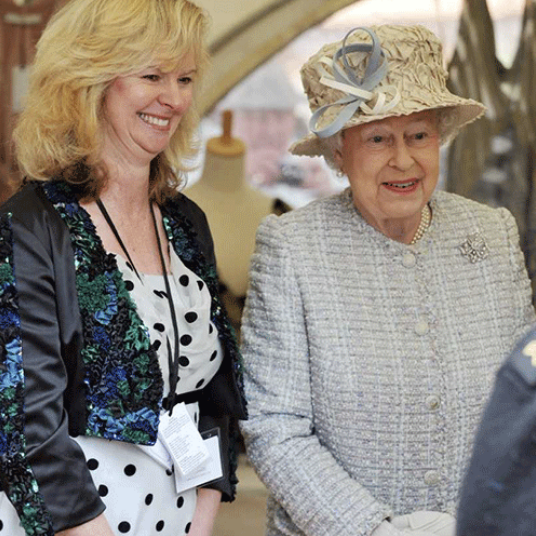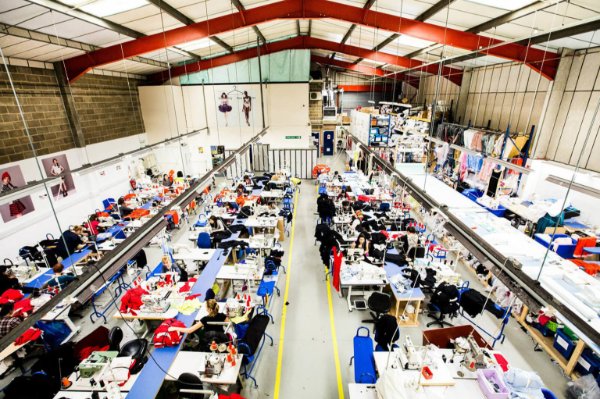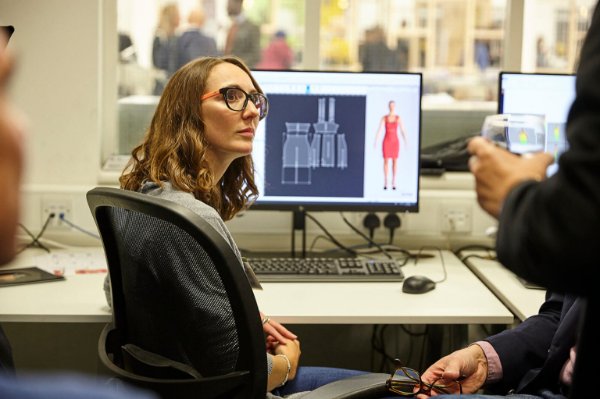A Window Into Fashion Production and Digital Technologies with Jenny Holloway of Fashion Enter
As the global health crisis plays out the impact for manufacturers across the world remains significant, the supply chains are fractured, and Retail has changed forever. For the Fashion Industry Covid will be a catalyst for change, and it’s estimated that 80% of the industry is currently in distress – McKinsey & Company.
We are in unchartered territory and face an uncertain future. However, out of adversity comes opportunity, and the crisis does present a sequence of events that will undoubtably accelerate change. The digitization of the supply chain is now a priority in order to avert risk, from design through to production and onto retail – digital technologies offer both the transparency and the technologies that are essential for agile manufacturing.
In our most recent podcast Fespa Textile Ambassador Debbie Mckeegan interviewed Jenny Holloway, CEO of Fashion Enter, a social enterprise. Jenny has a lifetimes experience within the Fashion Industry. Working as a senior buyer for many years she has a unique insight into the sector and its politics and practices. Moving on to found Fashion Enter 12 years ago, Jenny is a champion of British manufacturing and an advocate for ethical supply. Her factory based in the heart of London supply’s sewn garments to retail brands across the UK.
At the onset of the crisis Jenny and her team moved instinctively to protect the business. As a core supplier to the high street, production was about to slow and the shop floor needed sewn production if the workforce were to be retained. As a British business, Fashion Enter have a close working relationship with their customers, and quickly sort to renegotiate orders, supply’s and deliveries. Pivoting production early on in the pandemic to supply 20,000 items of PPE per week.

Credit: Fashion Enter
Caption: Moving on to found Fashion Enter 12 years ago, Jenny Holloway is a champion of British manufacturing and an advocate for ethical supply. Her factory based in the heart of London supply’s sewn garments to retail brands across the UK.
Fashion Enter is a business built for Fast Fashion, with a new definition. Working closely with customers the business manufactures utilizing an agile workflow. Their production is fast, delivering typically on a 2 to 3-week turnaround for UK retailers. A strategy that has protected the business during the current pandemic and is also a signpost to the future of sustainable manufacturing. Within the retail sector and for the super brands that also adopt this just in time approach such as Inditex, this has proven to be a successful business model where creativity thrives alongside sales. All of which meets the needs of the consumer and the requirement for product diversity.

Credit: Fashion Enter
Caption: Fashion Enter is a business built for Fast Fashion, with a new definition. Working closely with customers the business manufactures utilizing an agile workflow.
Inventory is killing the fashion industry, as witnessed by the figures released by many brands who have been caught out with vast quantities of stock during the crisis, orders that are either paused in production, worse cancelled, or frozen in transit during the pandemic. Bangladesh alone continues to face the seemingly insurmountable impact of $1.6 Billion dollars in cancelled orders putting 2 million jobs within the countries textile industry at risk.
The requirement for reshoring is real. Profits must be protected, and the Fashion industry must look to diversify its supply chain if it is to become risk averse. Unsold stock creates a culture of discounting reducing profits further. The industry also needs speed twinned with less stock, and that can only be delivered using intelligent data, alongside digital technologies. But that’s not as easy as it sounds.
Across the world many production skills are in short supply – this raises a big issue in the realities of reshoring. Not only have we globally lost the valuable skills of local sewn production, but we have also lost a generation of knowledge across many continents.

Credit: Optitex
Caption: From digital pattern design, nesting and grading and onto the fine skills of sewn manufacture the training school delivers essential learning.
Jenny and her team are passionate educators of the next manufacturing generation. Their training academy located aside production is a real-time environment for education, where valuable experience can be delivered in a live environment. The academy offers a suite of courses alongside vital experience instilled by a talented team of industry professionals. From digital pattern design, nesting and grading and onto the fine skills of sewn manufacture the training school delivers essential learning. Working with many large UK retailers to re-train their staff, the academy also teaches independent students and delivers employment opportunities.
Adapting to new technology in any live production environment can be a challenge, but to protect future business Fashion Enter has shown that in their efforts of the past they have and continue to secure a more certain future for their business and valued employees.

